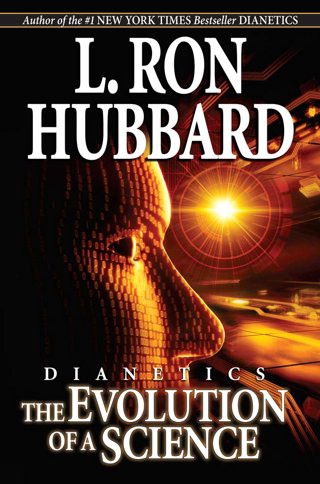Some Known Questions About Dianetics.
Some Known Questions About Dianetics.
Blog Article
Some Ideas on Dianetics You Need To Know
Table of ContentsThe smart Trick of Dianetics That Nobody is Talking AboutDianetics for DummiesHow Dianetics can Save You Time, Stress, and Money.The Best Strategy To Use For Dianetics
I could not ever not want to obtain anything that comes to mind for you- if it was otherwise, I would not be sitting here with you, doing this. I not just can never have a problem, or otherwise intend to hear something that comes to mind for you, yet I'm totally eager to know every concept, every thought, every photo or feeling that emerges or materializes for you- do not ever assume otherwise, and if somehow you do, please simply let me recognize! Occasionally, you might have an idea, and image, concept or incident appear that does not appear to answer the inquiry, or relate to it, however however, always do inform me about it, and as we continue, the significance will emerge for you.This is fundamental in the basis of handling, and the topic of this conversation: the standard roles of the counselor and the customer: The standard function of the therapist is, in contrast to "conventional training", not to manage, which implies to implement and/or hinder, but to instead function from the basis of EMPOWERING THE CUSTOMER.

Indicators on Dianetics You Should Know
John Mcmasters shared this standard reality splendidly well in one of his lectures on Power processing, wherein he describes exactly how he was asked what this "special flair" was that he had for giving such wonderful sessions; he needed to think of that for a minute, and detected that it was what he wasn't doing, as well as what he was doing: he wasn't examining, judging, computer, or actually, creating any ideas, let alone spoken expressions, after providing the command and while awaiting the PC to finish their solution to their complete satisfaction; he was, just and only, existing with the PC, and totally interested.
The function of the counselor, showed; that was his "unique flair". I have actually had my very own experience which showed me this well, extremely at an early stage in the game. In 1982, having recently finished my training and teaching fellowship on New Age Dianetics, I was running this on a COMPUTER, and there was a factor in the session where (being a little bit wet behind the ears not yet having many hours under my belt as a professional auditor) the PC appeared to be "taking as well long" to express anything vocally after I offered him a command.
This key ended up being one of the most beneficial payment that John ever made to the subject of treatment or auditing (Dianetics). In my simple viewpoint, it is the biggest payment that any person has ever before made to these subjectsthe application is completely non-judgemental, great site non-evaluative, and empty of any type of idea, advice or opinion.no preconditioned schedule for people, or 'degrees' that they need to do
In Idenics, the only source of details regarding a client is the private client. In Scientology we prided ourselves on not examining for individuals. However all that recommended you read really indicated was that the auditor did not VERBALLY examine for the PC in session. The registrars and ethics police officers assessed for the PC.
The Basic Principles Of Dianetics

Anyone who had actually ever before seen John audit could not help however notice a special top quality in his auditing."The client's standard role is to be there with the function of relocating the instructions of their spiritual goals, and to freely and completely reveal and experience whatever shows up for them in answering the questions and carrying out the instructions in the processing.
This is something to process as needed. Additionally, individuals regularly have previous experience and/or indoctrination in auditing/processing which, in some methods, and to some levels, really misinforms them right into attitudes, concepts and habits patterns that stop the full awareness of these functions, and so they will tend to hinder the expressing of what comes to mind, as in the instances provided over - Dianetics. * The first, and perhaps foremost instances of mis-indoctrination leading to much less than entirely smooth and efficient sessions, can be discovered in certain aspects of the training routines, or "TR's":"TR's" are usually a person's first, or at least early, experience in continue reading this Scientology, and while I will certainly go on to describe what I see as the flaws in principle and method, nevertheless, tend to be greatly therapeutic, done as they are offered (Hubbard firmly insists that "TR's are not processing, they are training", yet factually, they are both processing AND training)
There is no "flunking", and no denial of the reality of this being processing. The emphasis, as it should be, is on experiencing the other individual's presence.
Indicators on Dianetics You Should Know

Report this page